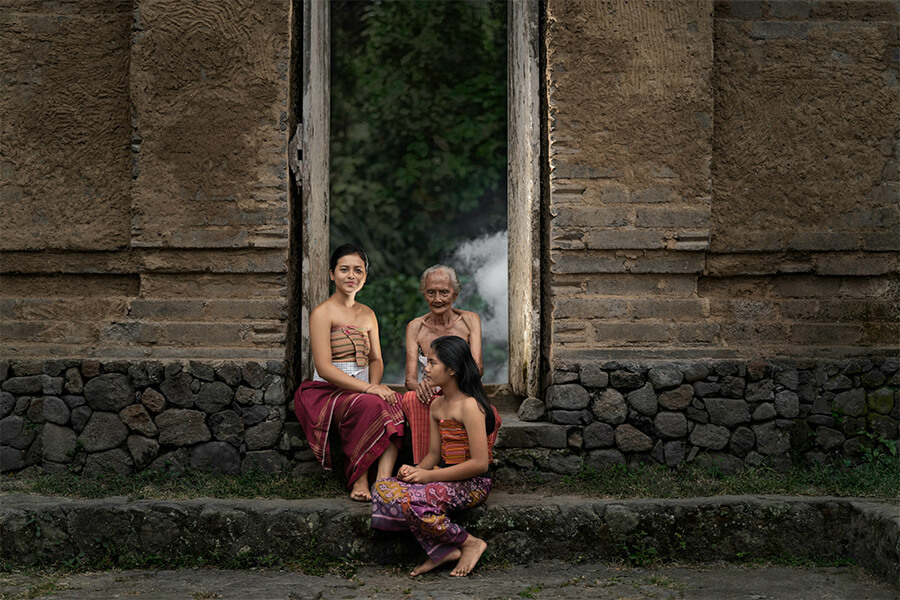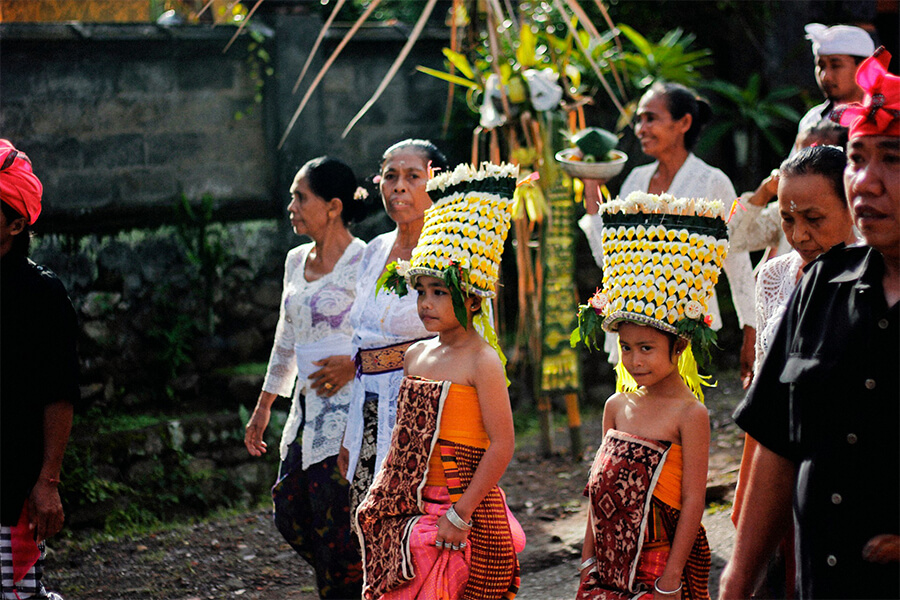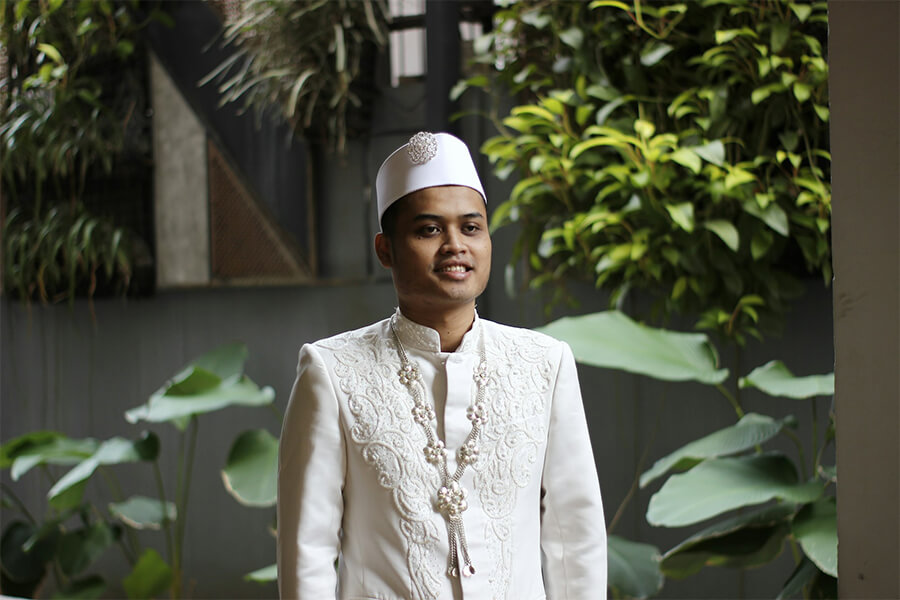Naming a child or choosing a name in Indonesia is a meaningful process, deeply rooted in the country’s diverse cultures, religions, and traditions. Indonesian names reflect the nation’s rich heritage, blending influences from its 300+ ethnic groups, Islamic traditions, and historical interactions with global cultures. Understanding names Indonesia involves exploring their structure, significance, and the thoughtful process of selecting a name. This article delves into the world of Indonesian names, their meanings, and practical steps for choosing an Indonesian name for boys and girls, ensuring cultural resonance and personal significance. For travelers interested in culture-focused Indonesia travel packages, learning about naming traditions offers a deeper insight into the values and identity of Indonesian society.
Indonesian Personal Names
Indonesian names are as diverse as the archipelago itself, with over 17,000 islands and a population of 279 million. Unlike Western naming conventions, which often follow a strict first-middle-last name structure, names Indonesia vary widely based on ethnicity, religion, and region. For example, Javanese, Sundanese, and Balinese names differ significantly in style and structure, reflecting local traditions.
Many Indonesia people, particularly from Java, use a single name without a surname, such as Sukarno or Megawati. This mononymic tradition is common, especially among the Javanese, who make up 40% of the population. In contrast, ethnic groups like the Batak or Minangkabau often include clan names or family identifiers, such as Siregar or Nasution for Batak people. Islamic influences, given that 87% of Indonesians are Muslim, lead to widespread use of Arabic-derived names like Muhammad or Fatima, often combined with local elements.
Indonesia names may also reflect social status, birth order, or family aspirations. For instance, names like Putra (son) or Putri (princess) indicate gender, while birth-order names like Eko (first) or Dwi (second) are common among Javanese. The flexibility of Indonesian names allows for creativity, but cultural and religious norms often guide the process, ensuring names carry meaning and respect tradition.
Indonesian Names' Meaning
The meaning behind an Indonesian name is a critical aspect of the naming process, often reflecting hopes, values, or spiritual beliefs. Names Indonesia are chosen to convey positive attributes, such as strength, wisdom, or beauty, and may draw from nature, religion, or cultural heritage. For example, the name Budi (common for males) means “wisdom” or “intellect” in Javanese, while Sari (common for females) means “essence” or “flower.”
Islamic Indonesian names often carry spiritual significance. Names like Ahmad (praiseworthy) or Aisyah (life, derived from the Prophet Muhammad’s wife) are popular among Muslims. Sanskrit influences, stemming from Indonesia’s Hindu-Buddhist past, appear in names like Dewi (goddess) or Aditya (sun). In Bali, where Hinduism predominates, names like Made or Wayan indicate birth order, reflecting cultural practices unique to the region.
Indonesia names also draw from nature and virtues. Names like Mawar (rose) or Bunga (flower) evoke beauty, while Jaya (victory) or Harapan (hope) express aspirations. Understanding these meanings is essential when choosing an Indonesian name, as parents often select names to inspire or bless their child’s future.
How to Set Name for Indonesian People
Choosing an Indonesian name involves balancing cultural traditions, family values, and personal preferences. The process is thoughtful, often involving family discussions, religious considerations, and sometimes consultations with spiritual leaders. Below, we outline steps for setting names Indonesia and explore popular Indonesian names for males and females.
Steps for Naming:
- Consider Cultural and Religious Context: Identify the family’s ethnic group (e.g., Javanese, Sundanese, Balinese) and religion (e.g., Islam, Hinduism, Christianity). For Muslims, Arabic names are common, while Balinese Hindus may use birth-order names.
- Reflect Family Values or Aspirations: Choose a name with a meaningful connotation, such as Rahmat (mercy) for Muslims or Ananta (eternal) for Hindus, to reflect desired qualities.
- Incorporate Birth Order or Clan Names: For Javanese, names like Eko (first-born) or Tri (third-born) are common. Ethnic groups like Batak may include clan names like Siregar.
- Check Pronunciation and Simplicity: Ensure the Indonesian name is easy to pronounce across regions and aligns with the phonetic nature of Bahasa Indonesia, the national language.
- Consult Family or Spiritual Leaders: In some communities, elders or religious figures suggest names based on auspicious dates or spiritual guidance.
- Test for Modern Appeal: For urban families, blending traditional names with modern ones (e.g., Muhammad Axel or Sari Amelia) is increasingly popular, especially in cities like Jakarta.
Indonesian Male Names
Indonesian names for males often convey strength, wisdom, or religious devotion. Popular names include:
- Muhammad: The most common male Indonesian name, meaning “praiseworthy,” reflecting Islamic faith. Variants like Ahmad or Mahmud are also widespread.
- Budi: A Javanese name meaning “wisdom” or “virtue,” popular across Indonesia for its positive connotation.
- Wayan: A Balinese name for the first-born, meaning “eldest,” commonly used in Hindu communities.
- Aditya: Derived from Sanskrit, meaning “sun,” symbolizing energy and leadership.
- Eko: A Javanese name for the first-born, meaning “one,” simple yet meaningful.
These names Indonesia are versatile, fitting both traditional and modern contexts. For example, Muhammad Rizky combines a religious name with “blessing,” a popular modern addition.
Indonesian Female Names
Indonesian names for females often evoke beauty, grace, or spiritual significance. Popular choices include:
- Fatima: An Arabic name meaning “captivating,” associated with the Prophet Muhammad’s daughter, common among Muslims.
- Dewi: A Sanskrit-derived name meaning “goddess,” widely used in Java and Bali.
- Putri: Meaning “princess,” a popular Indonesian name symbolizing grace and nobility.
- Sari: Meaning “essence” or “flower,” a delicate name used across ethnic groups.
- Ni Luh: A Balinese name for the first-born female, often paired with names like Ni Luh Made.
Female Indonesia names often blend elegance with cultural depth, such as Fatima Zahra (radiant) or Dewi Sri (goddess of rice, a Javanese deity).
Tips for Choosing an Indonesian Name
When selecting Indonesian names, consider these practical tips to ensure cultural sensitivity and personal resonance:
- Research Cultural Significance: Understand the ethnic or religious context of the name. For example, Balinese names like Wayan are specific to Hindu families, while Fatima suits Muslim ones.
- Balance Tradition and Modernity: Combine traditional names with modern ones (e.g., Ahmad Zidan or Sari Aulia) for a contemporary feel, especially in urban settings.
- Consider Pronunciation Abroad: If the child may travel or live internationally, choose an Indonesian name that’s easy for non-Indonesians to pronounce, like Budi or Sari.
- Involve Family: Naming is often a family affair in Indonesia. Consult grandparents or elders to honor traditions or incorporate family names.
- Check Name Length: Short names like Eko or Sari are common and practical, while longer names like Muhammad Ibrahim add formality.
- Avoid Negative Connotations: Ensure the Indonesia name doesn’t have unintended meanings in other languages or dialects.
For travelers or foreigners adopting an Indonesian name for cultural immersion, choosing a simple, widely recognized name like Budi or Putri can foster connection with locals. In professional or creative contexts, names like Aditya Pratama (first sun) or Dewi Lestari (eternal goddess) add a modern, artistic flair.
Conclusion
Indonesian names are a beautiful reflection of Indonesia’s cultural, religious, and linguistic diversity. From mononymic Javanese names like Budi to Balinese birth-order names like Wayan, names Indonesia carry deep meanings tied to heritage and aspirations. Choosing an Indonesian name involves understanding cultural contexts, selecting meaningful names, and balancing tradition with modern appeal. Whether for a newborn, a cultural adoption, or creative use, Indonesia names offer endless possibilities to express identity and values. By following the steps and tips outlined, anyone can thoughtfully set an Indonesian name that resonates with Indonesia’s rich tapestry.






